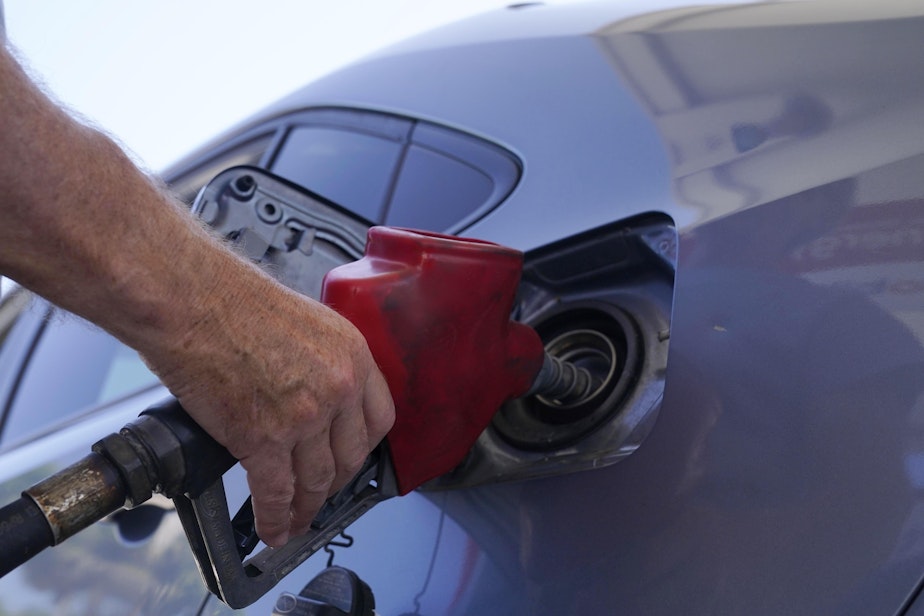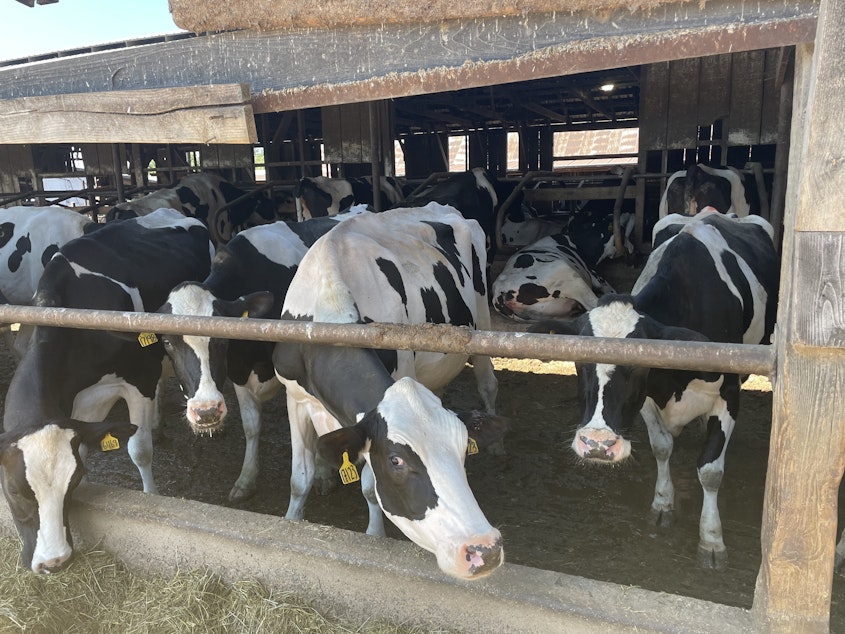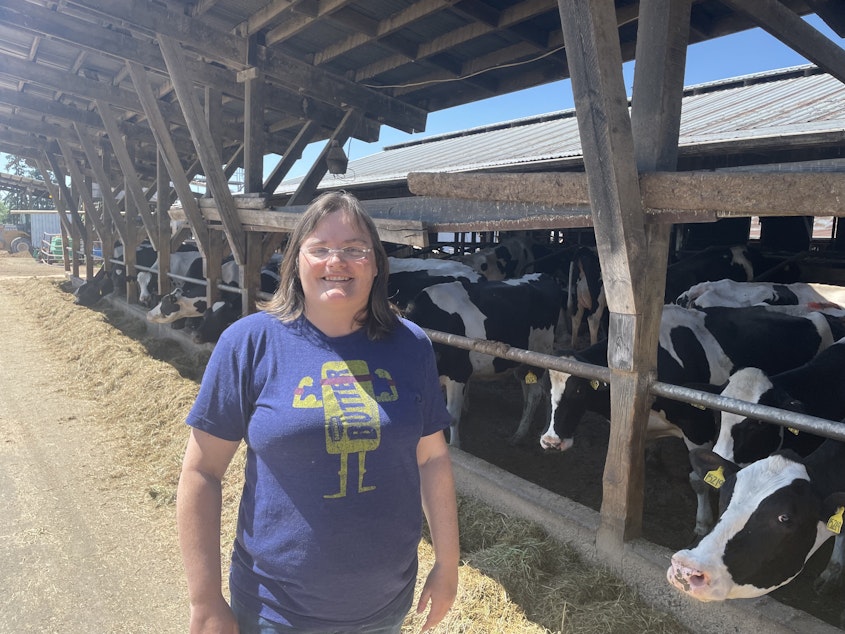Pain at the pump drives debate in Washington’s closest congressional race

Dairy farmer Leann Krainick serves her cows hay, and they eat a lot.
“We feed big bails to our cows — about 100 tons every month,” Krainick said.
The trouble is, Krainick’s paying 50 percent more these days to buy hay from Eastern Washington and have it trucked over the Cascades to her farm in Enumclaw. The soaring cost of hay is due mostly to rising fuel prices.
Krainick’s far from the only one feeling the pinch. More than half of America now says higher gas prices are causing financial hardship, according to a recent Gallup survey.

Pain at the pump is a major issue for political candidates running in the 8th Congressional District, which includes cities like Enumclaw in the western portion of the district to Chelan in the east. Incumbent Democrat Kim Schrier is running for reelection here, and this year political analysts are calling the race a tossup — one of the closest House races in the United States.

“The 8th is one of the last remaining swing districts in the country,” said Professor Margaret O'Mara, who writes about politics and history at the University of Washington. O'Mara said midterm elections are always tough "for the party that has a president in the White House."
Sponsored
But this year rising fuel prices are making it even worse for Schrier.
Voters have been punishing incumbents for high gas prices dating back to Jimmy Carter’s presidency, according to O'Mara.
Carter lost to Ronald Reagan in 1980 in part because of a gas shortage. Back in the 1970s, the OPEC oil cartel cut back production to drive up prices. Then, in 1979 the Iran hostage crisis deepened the energy crisis as oil traders — worried about a drop in supply — bid up prices even higher.
But Reagan blamed Democrats for the increase in energy prices. On the stump and in debates, he linked higher gas prices to laws that prevented some drilling on lands here in the United States.
More than 40 years later, Republicans running in the 8th Congressional District are using similar talking points, including King County Councilmember Reagan Dunn, who was named after former President Reagan. Like his namesake, Dunn blames Democrats for a supposed lack of U.S.-produced oil.
Sponsored
“Far-left politicians like Schrier are responsible for backing the policies that led to higher gas prices and increased our dependence on oil from hostile foreign regimes like Russia,” Dunn wrote in a campaign web post.

The two other well-funded Republican candidates in the race — former Army Ranger Jesse Jensen and businessman and former Pierce County Deputy Prosecutor Matt Larkin — have also blamed Democrats and called for more domestic oil production.
But these days the U.S. is already producing more oil than any other country in the world, including Russia and OPEC giant Saudi Arabia.
President Biden has been asking U.S. energy companies to ramp up production “for the good of your country, for the good of the world.” So far most U.S. oil companies have refused.
Sponsored
There's a reason why U.S. oil producers are being cautious about ramping up production, according to Scott Montgomery, an energy expert who lectures at University of Washington. They don’t want the oil prices to drop too fast due to increased supply like they did back in 2014.
“The shareholders do not want them to do that. They do not want them to go wild again and make the price take a dive,” Montgomery said.
For her part, Rep. Schrier, who serves on the House Agriculture Committee, is touting two bills that target gas prices to help her constituents, including farmers.
One would suspend the federal gas tax for the rest of the year, “to just give my constituents a little relief at a time when they really, really need that relief,” she said. But that measure would only cut the price by 18 cents per gallon.
Schrier’s other bill would spur the federal government to investigate oil and gas companies for what Schrier calls “price gouging.”
Sponsored
Montgomery argues that’s a waste of time.
First, he said, oil company production and pricing are not secrets. Secondly, he said energy prices are being driven up by oil traders — not oil companies — due to factors like the war in Ukraine.
“The oil traders on Wall Street and the Shanghai Stock Exchange, London, Tokyo, et cetera, those are the guys who bid the price up,” Montgomery said.
It's also not entirely clear how much impact American oil companies alone would have on prices, especially short term, even if they increase production as President Biden has called on them to do. Fuel produced in the U.S. is priced in a global market.
Recently, a group of OPEC partner nations known as OPEC Plus agreed to increase production, and yet the price of oil increased due to continuing concerns by oil traders about supply.
Sponsored
Montgomery said, if the U.S. wants to avoid the see-sawing price of oil in the long term, one way to do that would be to move to fuels that can only be consumed here — like solar, wind or nuclear power.
None of the Republicans mentioned in this story responded to KUOW’s requests for interviews.
Meanwhile, back on the dairy farm in Enumclaw, Krainick is hoping for some immediate relief.
Once the pricier hay gets to her farm, Krainick said, those giant bales need to be moved around by big machinery for storage and to feed the cows. Then, the cows must be milked, and all that milk has to be trucked out to be processed, and finally, on to supermarkets to be sold.
All of which means more fuel, Krainick said.
“Cows have to be milked every single day,” she said, calling dairy farming a “long-term planning process.”
But, she added, long-term planning is nearly impossible right now due to high fuel prices.





